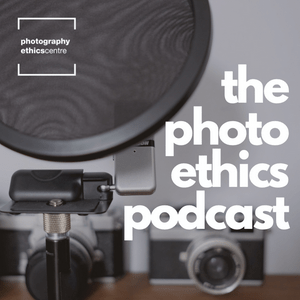In this episode, we talk with Jesse Alexander about creative sustainability. Jesse discusses the nuances of rurality and place making as well as the urban bias present in landscape photography. He also explains how idealised images of agriculture are disconnected from their polluting impact. Jesse shares his ethical approach which focuses on the general messaging of his work and lowering his own consumption. He speaks on the ethical framework at Falmouth University, which invites reflection and innovation while allowing students to learn without shame.
What you’ll find inside:
“There is I think a very very inherent urban bias in landscape representation. It sort of links to other things like enclosure acts and a very distorted appreciation of the land in a very broad sense.” (9.11)
“These images are really really pervasive I think, particularly around agricultural actually and its very disconnected. Unfortunately, the majority of agricultural practices are really bad, really polluting… the dominant narratives are quite different.” (12.06)
“Does it increase consumption basically in a bad way? That’s sort of my core fundamental approach, the priority has to be about thinking about the messaging.” (16.24)
“I do think if ethics are so far at the front and in such big bold letters then I think it can be a bit kind of restrictive. So, I think the thing I say is the MA course is a safe space to make mistakes.” (25.47)
“At the time I kind of had a distinction between ethics and sustainability and then since that time I’ve really realised that actually they are two sides of the same coin.” (32.17)
What does photography ethics mean to Jesse?
“I think it is ultimately what your practice says, and what it says about you as well. Whether it is in like the really obvious messaging of the work or actually the kind of very subtle ways of how you go about working. I think it really does actually filter into all of those choices you make as a practitioner.” (43.35)
Links:
David Campany
Paul Seawright
Paul Graham: Troubled Land
Clive Landen
The Digging Season
AdGreen
Albert
Jesse Alexander
Alice Cazenave
Dawn Woolley
Tamsin Green


